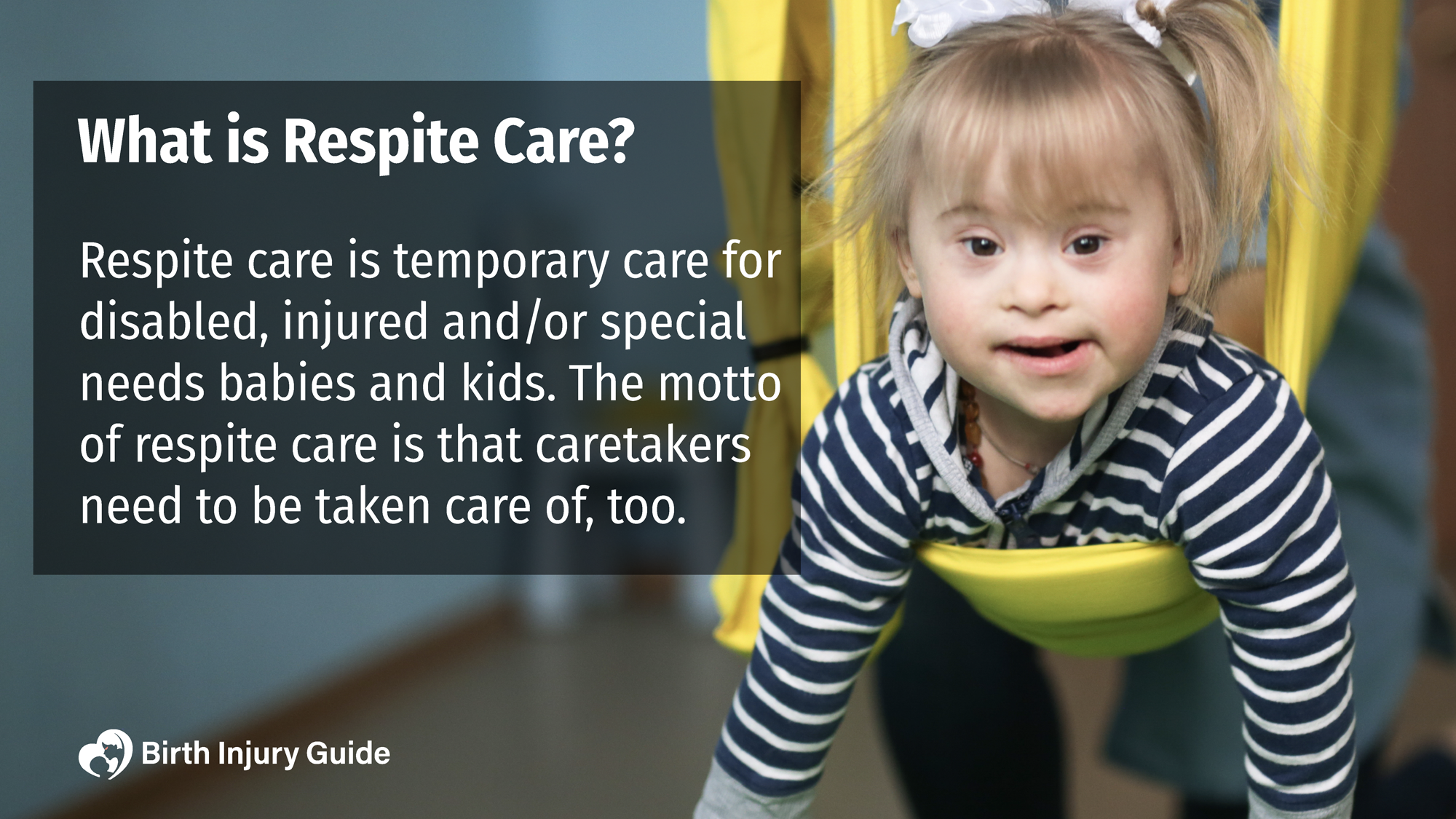
Respite Care for Children and Families Affected by Birth Injuries
Being a parent can be an exhausting thing. You love your child and care for them like no one else can. You make sacrifices and you persevere. Parenting is often called a “thankless job” – but do you need thanks for what you do? Perhaps not. However, if your child has suffered from birth injuries or has special needs, you may not need “thanks”, but you very well may need a break.
That brings many parents to the questions of “who” and “how”. Who will take care of your child in the way that he or she needs while you take a much-needed break? How will you manage the challenges of being away from your child without constant stress? Are respite care caregivers equipped to manage autism, cerebral palsy or brain damage?
Respite Care for Families Affected by Birth Injuries
One of the best ways that children and families affected by birth injuries can get a break is by turning to respite care. Unlike a traditional vacation, respite care is designed for families with special needs. These services are facilitated by professionals who can ensure your child is well cared for, and that the needs of everyone in the family are addressed.

Respite care can be defined as:
“The transfer of primary caregiving responsibilities to another person, typically a professional caregiver, relative or friend, in order for primary caregivers to receive temporary relief from caregiving responsibilities.”
Comfort Keepers
Respite care is a service or facility that offers families with special needs the opportunity to relax and enjoy time together. Often, the goal is to ensure that all family members are getting the time and attention that they need. Also, respite care helps parents take a break and have time to focus on themselves for a while.
Respite care can help families in many ways. Depending on your needs, you may have access to respite care in the form of:
- A caregiver who makes house calls daily, weekly or as needed.
- Drop-off programs that provide supervised activities for children.
- Facilities that host daily or weekly respite care programs, such as sleep away camps, residential facilities and vacation-type trips.
There are respite care services that are federally funded, and there are often community-based programs as well. Your local Health Department may have information about respite care programs, or you can talk to your child’s pediatrician. You can also contact the ARCH National Respite Network and Resource Center to learn more about programs available in your area.
How Can Respite Care Help?
Birth injuries and disabilities can be demanding and time-consuming. Respite care recharges the batteries, giving parents the energy to move forward with daily challenges, and lowers the risk of depression and anxiety disorders among parents.
Respite care can also be a time-out to get caught up. This could include family counseling sessions, or it could include parenting classes. Some parents fear that their children have needs they can’t meet, but taking a time out to learn about being a caretaker ends up being time well spent.
For families with multiple children, respite care can provide opportunities for one-on-one time with those children, without the stress of worrying about who is caring for the other child or children. The goal is to help families manage challenges and make sure that every individual’s needs are met.
Is Respite Care Expensive?
Respite care can be costly, but there are ways to manage those costs. There are state and federal programs that provide grants and scholarships for children and families affected by birth injuries or disabling medical conditions. These funds can help your family access the benefits of respite care without the worry of financial strain.
There are also Medicaid waivers that can cover the cost of respite care. Unfortunately, these funds are more difficult to access. Many states have waiting lists for Medicaid waivers. Make sure you go ahead and get on the waiting list so that you can reserve your place in line.
There are also programs for members of the military and veterans. These families may qualify for grants, which can cover the cost of 40 hours of respite care per month.
Birth Injuries and Respite Care
If you are the primary caregiver of a child with birth injuries or special needs, you likely qualify for respite care. Respite care is a service that many families find helpful in managing disabilities like:
- Autism
- Brain Injury
- Cerebral Palsy
- Stroke
- Blindness
- Cancer
These are all conditions that affect your entire family. Respite care is a unique way of taking a break while ensuring your child is still getting the best care possible.
Sources:
- https://archrespite.org/ta-center-for-respite/state-lifespan-respite-programs
- https://kidshealth.org/en/parents/respite-care.html
- https://www.comfortkeepers.com/info-center/category/respite-care/article/what-is-respite-care
- https://www.autismspeaks.org/respite-care-0
- https://www.webmd.com/cancer/what-is-respite-care

